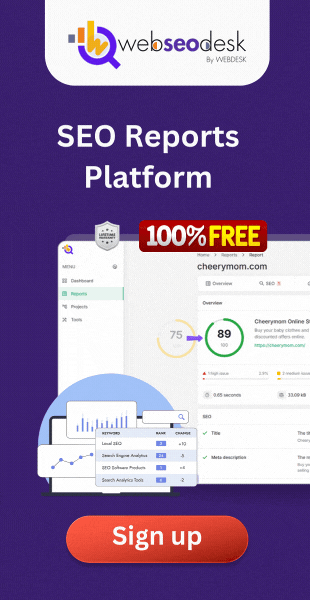Driving natural traffic to your website and raising its online profile depend on SEO, or search engine optimization. Still, the realm of SEO is rife with false ideas and fallacies that might mislead you. Unqualified sources, out-of-date knowledge, or misinterpretation of how SEO operates help to propagate these misconceptions. We will dispel some typical SEO fallacies in this post so you may concentrate on the techniques really important for the development of your website.
- One-time SEO is a chore.
One of the most persistent falsehoods in the field is the belief that SEO is a one-time task. Many people feel they can forget about their website once it has been improved. SEO is a continuous process, though, and it calls for constant changes and upgrades.
Particularly Google, search engines regularly change their algorithms to give consumers the most pertinent and premium material. Should you cease working on your SEO, competition site optimization will cause your ranks to gradually decline. Continually update your material, create fresh backlinks, and track site performance to keep ahead.
- The secret to ranking is keyword density.
Another widespread belief is that cramming your material with keywords will naturally raise your ranking. Although keywords are a fundamental part of SEO, emphasizing too much keyword density could compromise the readability and user experience of your content.
Google’s algorithms give excellent, user-friendly content top priority above keyword-heavy pieces. Put more of an emphasis on giving value to your audience than on aiming for a given keyword density. Use keywords organically; also, think about using related terms (LSI keywords) to improve the setting of your material.
- For SEO, backlinks are everything.
Though they are not the only consideration, backlinks have long been a crucial component of SEO results. Many think that increasing backlink count will provide better results. Although a link-building approach concentrated just on numbers can damage your website, quality backlinks from reliable sites can greatly improve your SEO.
Actually, poor-quality or spammy backlinks can get search engines penalized. Concentrating on obtaining pertinent, authoritative backlinks that actually help your website to be more credible and trustworthy is quite vital. Give quality above mass importance.
- Social Media Directly Influences Search Engine Results Pages
Many times, social media is cited as a direct ranking determinant for SEO. Social media can definitely generate visitors to your website and raise brand awareness, but there is no clear relationship between social media signals and SEO results.
Having said that, by raising the reach of your material, social media helps SEO subtly. Sharing your material on sites like Facebook, Twitter, or LinkedIn by users will increase traffic and increase engagement, hence creating more backlink possibilities. These elements might therefore help you to improve your rankings.
- Meta tags are not now very relevant.
Modern SEO techniques can ignore meta tags—such as meta descriptions and meta titles. Though this is far from the reality, some feel they have no influence in search results. Meta descriptions are very important in motivating readers to click on your page even though they themselves have no direct bearing on ranking.
Your click-through rate (CTR), a crucial indicator of user behavior to search engines, can be raised with an attractive and pertinent meta description. Likewise, carefully written meta titles with pertinent keywords will increase your show in search results.
- More content results in improved SEO.
Although content rules SEO, adding additional pages to your website won’t always raise your rating. It’s about quality, not quantity. Search engines give valuable, educational, and pertinent results to user searches first priority for material.
Low-quality content might actually lower your rating since search engines seek to provide the most pertinent and useful results. Give more attention to developing in-depth, high-quality pieces addressing your audience’s requirements and questions than on churning out lots of material.
- SEO Commitments: Instant Results
Though SEO is a long-term approach, many people hope it will show results right away. Search engines crawl, index, and rank your content over time. To observe appreciable changes in traffic and rankings, weeks or even months may pass.
SEO depends mostly on patience. Emphasize the need for using excellent practices, producing worthwhile material, and strengthening your backlink profile. These initiatives will progressively produce better search engine results and more natural traffic.
- SEO revolves mostly around ranking number one.
Although being first on the search results is a desired outcome, SEO is more than just trying to get the #1 position. Many people click on results in positions 2–10, particularly if those pages offer the most pertinent and helpful material.
Rather than fixating on the top, concentrate on producing material with actual value and fit for user intent. Furthermore, resulting in greater natural traffic and visibility is ranking well for pertinent long-term keywords and highlighted snippets.
Final Thought
SEO is a complicated, always-changing industry with numerous misconceptions that, if you believe them, might prevent the success of your website. One should concentrate on techniques in line with user purpose and search engine best standards. Following tested strategies and dispelling common SEO fallacies will help you be more suited to raise the ranking of your website, increase natural traffic, and accomplish long-term SEO success.












0 Comments